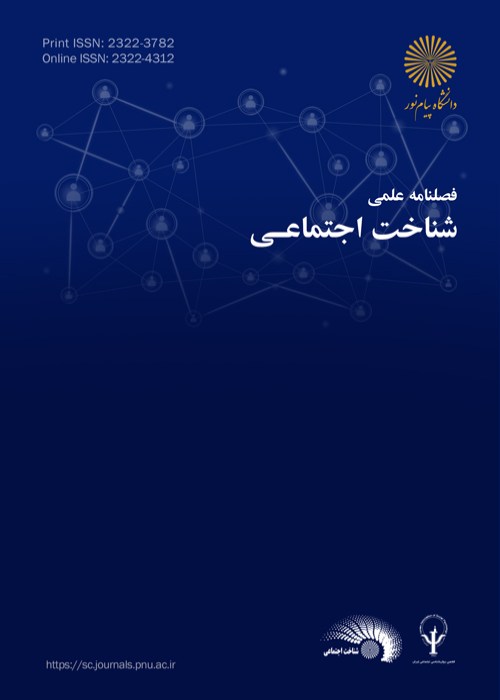Comparing Attribution Styles, Maladaptive Schemata, and Dysfunctional Attitudes (three aspects of social cognition) in Depressed and Normal People
Author(s):
Abstract:
Introduction
Social cognition with components such as stereotypical thought and basic schemata has a critical role in social encryption and encoding. It also influences response and behavior in persons. The aim of the present study wass assessing the three components of social cognition in depressed and healthy persons.Method
By using comparative method in the statistical society of depressed students in Tehran, a sample of 60 visitors to the counseling center of the University with eligibility to participate in research was selected by using purposive sampling. Another 60 subjects were selected for the healthy group. Data was collected using Attribution Style Scale, Maladaptive Schemata, Dysfunctional Attitudes Questionnaires and Beck Depression Scale.Results
Analysis of covariance revealed significant differences in attribution style, maladaptive schemata and dysfunctional attitudes between healthy and depressed groups.Conclusion
Disrupted social cognition components are clear in depressed people; therefore, it seems necessary to consider them for therapy process. Keywords:
Language:
Persian
Published:
Quarterly Journal of Social Cognition, Volume:6 Issue: 11, 2017
Pages:
73 to 87
https://magiran.com/p1726820
دانلود و مطالعه متن این مقاله با یکی از روشهای زیر امکان پذیر است:
اشتراک شخصی
با عضویت و پرداخت آنلاین حق اشتراک یکساله به مبلغ 1,390,000ريال میتوانید 70 عنوان مطلب دانلود کنید!
اشتراک سازمانی
به کتابخانه دانشگاه یا محل کار خود پیشنهاد کنید تا اشتراک سازمانی این پایگاه را برای دسترسی نامحدود همه کاربران به متن مطالب تهیه نمایند!
توجه!
- حق عضویت دریافتی صرف حمایت از نشریات عضو و نگهداری، تکمیل و توسعه مگیران میشود.
- پرداخت حق اشتراک و دانلود مقالات اجازه بازنشر آن در سایر رسانههای چاپی و دیجیتال را به کاربر نمیدهد.
In order to view content subscription is required
Personal subscription
Subscribe magiran.com for 70 € euros via PayPal and download 70 articles during a year.
Organization subscription
Please contact us to subscribe your university or library for unlimited access!


